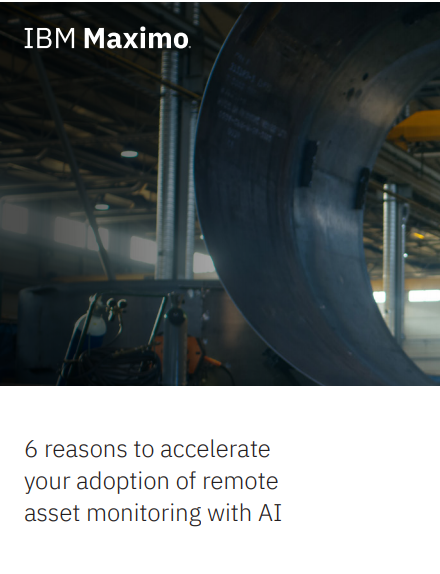AI should include 'undesirable side effect' warnings, claims PwC
Maria Luciana Axente says data scientists should respond to an ethical code just like medical practitioners


Artificial intelligence (AI) should be treated with the same scrutiny as medication and warn users about potential “undesirable side effects”, according to an AI ethics expert.
Maria Luciana Axente, PwC UK’s Responsible AI and AI for Good lead, made the statement during a discussion on the second day of the newly-launched AI Festival, adding that data scientists should respond to an ethical code just like medical practitioners.
When quizzed by BT's head of AI and Data Science Research, Detlef Nauck, about whether she thinks AI systems should be regulated like medicines that come “with a description of undesirable side effects”, Axente replied: “Of course, no doubt about it.”
"We have to move in that direction,” she said. “Because we started using AI in so many different domains of life that have a significant impact on people's lives.”
However, Axente added that, although she has heard arguments for creating an agency that would regulate the use of AI in a similar way to how the US Food and Drug Administration aims to protect public health, she believes that it might be worth focusing on existing institutions.
“Let's see what we can be doing on this part of the pond, and how can we leverage some of the institutions we already have, rather than creating new ones – but they will have to go in that direction, especially for high-risk application [of AI],” she said.
RELATED RESOURCE

Six reasons to accelerate remote asset monitoring with AI
How to optimise resources, increase productivity, and grow profit margins with AI
She referenced the European Commission’s plans to revise EU laws on the use of AI, with new regulations “set to come in April”.
Get the ITPro daily newsletter
Sign up today and you will receive a free copy of our Future Focus 2025 report - the leading guidance on AI, cybersecurity and other IT challenges as per 700+ senior executives
“I think [they] will allow us to at least separate the use cases that need more attention and more governance from the ones that we can be a little bit more relaxed,” she said.
Axente’s comments come as Facebook’s head of hardware confirmed that the tech giant is considering using facial recognition technology for its upcoming smart glasses, which are set to be released later this year.
Facial recognition has been the subject of a petition launched last week by a coalition of privacy advocates, who are pressuring EU regulators to take advantage of its upcoming revision of AI laws and ban the use of biometric mass surveillance tools.
Having only graduated from City University in 2019, Sabina has already demonstrated her abilities as a keen writer and effective journalist. Currently a content writer for Drapers, Sabina spent a number of years writing for ITPro, specialising in networking and telecommunications, as well as charting the efforts of technology companies to improve their inclusion and diversity strategies, a topic close to her heart.
Sabina has also held a number of editorial roles at Harper's Bazaar, Cube Collective, and HighClouds.
-
 Bigger salaries, more burnout: Is the CISO role in crisis?
Bigger salaries, more burnout: Is the CISO role in crisis?In-depth CISOs are more stressed than ever before – but why is this and what can be done?
By Kate O'Flaherty Published
-
 Cheap cyber crime kits can be bought on the dark web for less than $25
Cheap cyber crime kits can be bought on the dark web for less than $25News Research from NordVPN shows phishing kits are now widely available on the dark web and via messaging apps like Telegram, and are often selling for less than $25.
By Emma Woollacott Published
-
 AI projects are faltering as CDOs grapple with poor data quality
AI projects are faltering as CDOs grapple with poor data qualityNews Chief data officers say they can't maintain consistent data quality, and that it's affecting AI outcomes
By Emma Woollacott Published
-
 Taking back control of the data silos holding your business back
Taking back control of the data silos holding your business backTutorials Data silos can contain conflicting information, leading to misguided strategies and poor decision making
By Sandra Vogel Published
-
 How the role of the chief data officer (CDO) will evolve in 2023
How the role of the chief data officer (CDO) will evolve in 2023In-depth The best CDOs will not only focus on creating more value from data but transmit data skills across the whole enterprise
By Mark Samuels Published
-
 Record computing degree applications driven by AI interest, says BCS
Record computing degree applications driven by AI interest, says BCSNews The institute suggested students are attracted to computer sciences by innovative areas, which also include machine learning and the fight against climate change
By Rory Bathgate Published
-
 Data science vs data analytics: Which field is right for you?
Data science vs data analytics: Which field is right for you?In-depth A career as a data analyst or a data scientist can be as rewarding as it is lucrative, but it pays to understand the subtle differences between the two
By Drew Turney Last updated
-
 SoftBank under pressure over links with 'blacklisted' Chinese facial recognition firm
SoftBank under pressure over links with 'blacklisted' Chinese facial recognition firmNews A subsidiary of the Japanese tech giant that conducts business with Mastercard and Visa relies on tech by the sanctioned SenseTime
By Rory Bathgate Published
-
 Anaconda acquires PythonAnywhere in a bid to improve Python accessibility
Anaconda acquires PythonAnywhere in a bid to improve Python accessibilityNews Expanded Python capabilities will help unite teams and create access to more robust cloud resources, provider says
By Praharsha Anand Published
-
 India backtracks on biometric ID system warning
India backtracks on biometric ID system warningNews Despite alerting citizens to problems with the system, it has now withdrawn the warning two days after its publication
By Zach Marzouk Published